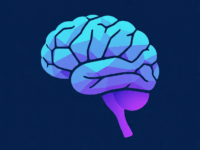
Monetize Your Skills with AI Tools
In an increasingly digital world, the ability to earn a living often hinges on adapting to new technologies. For many, the advent of Artificial Intelligence might seem like a threat, poised to automate jobs and diminish the value of human skills. However, a different narrative is emerging: AI, when viewed as a powerful co-pilot rather than a competitor, can actually amplify your existing talents and open up entirely new avenues for income. Learning to monetize your skills with AI tools isn’t about becoming an AI expert overnight; it’s about strategically integrating these intelligent assistants into your workflow to increase efficiency, enhance output, and reach a wider audience than ever before.
This article will explore how professionals across various industries – from creative fields like writing and design to analytical roles in marketing and development – can leverage AI tools to boost their productivity, generate new products and services, and ultimately, unlock significant earning potential. Get ready to discover how AI can transform your passion into profit.
Background and Context: The Pre-AI Hustle
Before the widespread accessibility of AI tools, monetizing skills often involved a more labor-intensive and linear path:
- Creative Professionals (Writers, Designers): Hours spent on initial drafts, manual revisions, extensive research, and repetitive tasks. Scalability was limited by individual output. Earning potential was directly tied to billable hours or the number of projects one person could handle.
- Marketers: Manual analysis of market trends, crafting campaign messages from scratch, time-consuming A/B testing, and limited personalization capabilities. Reaching a broad, segmented audience was a significant challenge.
- Developers: Writing code line-by-line, extensive debugging, manual testing, and often rebuilding components from scratch for each new project. Productivity was capped by coding speed and problem-solving abilities.
- Entrepreneurs/Small Business Owners: Significant time and cost invested in creating marketing materials, website content, customer service, and market research, often requiring hiring external experts or dedicating substantial personal effort.
The common thread was that human effort was the primary bottleneck. Scaling services or increasing output often meant hiring more people or working longer hours. AI changes this equation by automating the mundane, accelerating the creative, and providing data-driven insights that were previously out of reach for individuals or small teams.
Key Ways to Monetize Your Skills with AI Tools
AI tools act as accelerators, allowing you to produce more, produce better, and reach further. Here’s how you can monetize your skills with AI tools:
1. Enhance Content Creation & Delivery (Writers, Content Creators, Marketers)
AI excels at generating and optimizing various forms of content, allowing creators to increase their volume and quality.
- Accelerated Drafting: AI writing assistants (e.g., Jasper, Copy.ai, Gemini) can generate initial drafts for blog posts, articles, marketing copy, social media captions, and scripts in minutes, drastically cutting down initial writing time. Writers can then focus on refining, adding human nuance, and ensuring factual accuracy.
- Monetization: Offer accelerated content creation services to clients, take on more projects, or produce more content for your own monetized platforms (blogs, YouTube).
- SEO Optimization: Tools like Surfer SEO, often integrated with AI writers, can help optimize content for search engines, increasing visibility and organic traffic.
- Monetization: Provide SEO-enhanced writing services, or drive more ad revenue/affiliate sales on your own content.
- Multilingual Content: AI translation tools (e.g., DeepL) allow you to quickly translate and localize your content for global audiences, expanding your potential client base.
- Monetization: Offer content localization services to businesses expanding internationally.
2. Supercharge Visual Design (Graphic Designers, Artists)
Generative AI is a game-changer for visual creation, opening up new product lines and efficiency gains.
- Rapid Image & Art Generation: Tools like Midjourney, DALL-E 3, and Adobe Firefly can generate unique images, illustrations, logos, and art from text prompts. Designers can use these as starting points, inspiration, or finished products.
- Monetization: Sell AI-generated art prints, digital assets (stock photos, backgrounds), create custom visual assets for clients, or even design print-on-demand products (T-shirts, mugs) with AI-generated designs.
- Design Automation & Enhancement: AI-powered features in tools like Canva and Adobe Sensei automate tedious tasks like background removal, image upscaling (Let’s Enhance), and color palette generation (Khroma).
- Monetization: Deliver design projects faster, offer more competitive pricing, or take on a higher volume of work.
- 3D Model Generation: Some AI tools can even generate 3D models from 2D images or text, valuable for game development, architecture, and product visualization.
- Monetization: Sell 3D assets on marketplaces, or offer rapid 3D prototyping services.
3. Streamline Development & Automation (Developers, IT Professionals)
AI code assistants are boosting programmer productivity, leading to faster project completion and new service offerings.
- Code Generation & Completion: Tools like GitHub Copilot, Amazon CodeWhisperer, and Tabnine provide real-time code suggestions, complete lines of code, and even generate entire functions from natural language prompts.
- Monetization: Complete development projects faster, take on more freelance coding assignments, or build more sophisticated applications for clients in less time.
- Debugging & Refactoring: AI can help identify bugs and suggest more efficient code structures.
- Monetization: Offer enhanced code review and optimization services.
- Chatbot Development: AI platforms enable the creation of custom chatbots for customer service, lead generation, or internal tools.
- Monetization: Develop and deploy custom AI chatbots for businesses, charging for setup and maintenance.
4. Optimize Marketing & Sales (Marketers, Business Owners)
AI provides unparalleled capabilities for understanding customers and personalizing outreach.
- Personalized Marketing Campaigns: AI can analyze customer data to create hyper-personalized ad copy, email sequences, and product recommendations, leading to higher conversion rates.
- Monetization: Offer AI-powered marketing automation services, or improve your own e-commerce sales.
- Market Research & Trend Analysis: AI can process vast amounts of data from social media, news, and search queries to identify emerging trends and consumer sentiment, informing strategic decisions.
- Monetization: Provide AI-driven market research reports or consulting services.
- Ad Optimization: AI can manage and optimize paid advertising campaigns across platforms, ensuring maximum ROI by dynamically adjusting bids and targeting.
- Monetization: Offer AI-powered PPC management services to businesses.
Detailed Comparison: Manual vs. AI-Augmented Skill Monetization
| Aspect | Manual Skill Monetization | AI-Augmented Skill Monetization |
| Productivity | Limited by human speed and capacity; repetitive tasks are bottlenecks. | Greatly increased; AI handles repetitive tasks, speeding up creation. |
| Scalability | Difficult to scale without hiring more people or increasing hours. | Highly scalable; AI allows one person to manage more projects/clients. |
| Output Quality | Dependent on individual skill, potential for human error. | Enhanced and more consistent; AI can suggest improvements, maintain brand voice. |
| Research/Insights | Time-consuming manual research; limited by available data. | Rapid data analysis, real-time insights, predictive capabilities. |
| Personalization | Basic segmentation; labor-intensive for true personalization. | Hyper-personalization at scale; tailored content for individuals. |
| Cost | Primarily labor costs (your time or employee wages). | Software/subscription costs for AI tools; potentially lower overall project cost. |
| Niche Markets | May require extensive specialized knowledge/time for small markets. | AI can quickly generate content/products for niche interests, making them viable. |
Pros and Cons of Monetizing Your Skills with AI Tools
Pros:
- Increased Efficiency & Productivity: Get more done in less time, freeing up capacity for more projects or strategic thinking.
- Enhanced Quality & Creativity: AI can assist in brainstorming, provide diverse options, and refine outputs, leading to higher quality work.
- New Service Offerings: AI enables you to offer services that were previously too complex, time-consuming, or expensive.
- Reduced Costs: Automating tasks can lower operational costs for your business.
- Competitive Edge: Early adopters can differentiate themselves and gain a lead in the market.
- Passive Income Opportunities: Create digital products (eBooks, art, templates) with AI assistance that can be sold repeatedly.
- Accessibility: Many user-friendly AI tools require no coding experience, democratizing access to powerful capabilities.
Cons:
- Quality Control & Human Oversight: AI output isn’t always perfect; human review and refinement are crucial to ensure accuracy, relevance, and brand alignment.
- Risk of Generic Content: Over-reliance on AI without human input can lead to bland, unoriginal, or inauthentic output.
- Ethical & Copyright Concerns: Questions around AI-generated content ownership and potential infringement on copyrighted training data are still evolving.
- Dependency on Tools: Reliance on third-party AI platforms means you’re subject to their terms, pricing changes, or potential shutdowns.
- Learning Curve: While some tools are easy, mastering effective “prompt engineering” and integrating AI into complex workflows still requires learning.
- Cost of Advanced Tools: Premium AI tools and API access can become expensive for heavy usage.
- Maintaining Uniqueness: As AI becomes widespread, standing out requires combining AI with unique human insights and specialized domain knowledge.
Use Cases / Who Should Monetize Their Skills with AI Tools
- Freelancers (Writers, Designers, Developers): To increase project capacity, offer new services, and deliver faster turnaround times.
- Content Creators (Bloggers, YouTubers, Podcasters): To generate ideas, draft content, create visuals, and optimize for distribution.
- E-commerce Entrepreneurs: To create product descriptions, ad copy, marketing visuals, and personalize customer experiences.
- Digital Marketers: To automate campaign management, perform detailed analytics, and personalize outreach.
- Small Business Owners: To handle marketing, customer service, and content creation without a large team.
- Consultants: To provide data-driven insights, create professional reports, and accelerate research for clients.
- Educators/Course Creators: To generate course outlines, lesson content, quizzes, and marketing materials for online courses.
- Artists & Illustrators: To generate unique art styles, create variations, and produce high volumes of digital art for sale.
FAQs about Monetizing Your Skills with AI Tools
Q1: Do I need to be a tech expert to use AI tools for monetization?
No! Many modern AI tools are designed with user-friendly interfaces (low-code/no-code platforms) that require minimal to no coding knowledge. Your existing skills (writing, design, marketing) are far more important, as AI acts as an enhancement, not a replacement.
Q2: Can AI really replace my job or skill set?
AI is more likely to transform jobs rather than eliminate them entirely. Instead of replacing you, AI tools will likely change how you perform your tasks. Those who learn to effectively integrate AI into their workflow will have a significant advantage over those who don’t. Your unique human creativity, critical thinking, empathy, and strategic judgment remain indispensable.
Q3: How do I ensure my AI-generated content or design is unique?
The key is active human guidance. Don’t just accept the first output from AI. Refine your prompts, iterate, combine AI-generated elements with your own original ideas, and apply your unique artistic or intellectual style. Use AI as a brainstorming partner and production assistant, not a fully automated content factory.
Q4: Are there ethical considerations when using AI for monetization?
Absolutely. Key ethical considerations include:
- Transparency: Be clear with clients or your audience about where and how AI was used.
- Bias: Be aware that AI can inherit biases from its training data; always review output for fairness and accuracy.
- Copyright: The legal landscape around AI-generated content and copyright is still evolving. Understand the terms of service of the AI tools you use and current legal precedents.
- Authenticity: Ensure that using AI doesn’t diminish the genuine value or human connection of your brand or work.
Q5: What’s the best way to get started if I’m new to AI tools?
Start small and experiment! Choose a specific task you want to make more efficient (e.g., writing social media captions, generating blog post ideas). Pick a free or low-cost, user-friendly AI tool (like ChatGPT for text, or Canva’s AI features for design) and play around with it. There are tons of online tutorials and communities to help you learn.
Q6: How can I find clients interested in AI-enhanced services?
Highlight your AI proficiency in your portfolio and on platforms like Upwork, Fiverr, or LinkedIn. Position yourself as someone who can deliver faster, more efficient, and higher-quality results because of your AI integration. Showcase examples of how AI helped you achieve better outcomes for clients.
Conclusion: The Era of Amplified Skills
The ability to monetize your skills with AI tools is no longer a futuristic concept; it’s a present-day reality offering immense potential. AI isn’t here to render human talent obsolete but to serve as a powerful force multiplier, enabling you to achieve more with greater speed, precision, and creativity. By embracing these intelligent assistants, you can overcome previous limitations, take on new opportunities, and carve out a more prosperous path for your career or business.
Final Verdict: Embrace the AI Co-Pilot for Profit
For anyone looking to expand their earning potential and stay competitive in the evolving professional landscape, integrating AI tools into your skillset is not just an option—it’s a necessity. The final verdict is clear: view AI not as a threat, but as your most valuable co-pilot. Those who learn to effectively leverage AI to enhance their core competencies will be the ones who not only survive but thrive, turning their existing skills into significant, sustainable income streams in the AI-powered economy.



















Leave a Reply